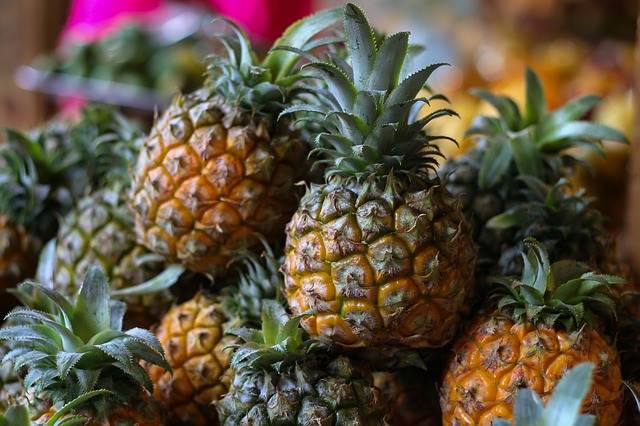Pregnant women often find themselves at the receiving end of both a doctor’s dietary restrictions and old wives’ tales suggested by friends and family. Of the do’s and don’ts, pineapple is a fruit that has always been a doubtful choice. While there is no scientific reason to prove that pineapples must be completely avoided by pregnant women, we do hear old wives’ tales that warn us of its risks.
- What exactly does pineapple contain, and what can women who are pregnant benefit from it while being cautious of it?
Pineapple contains bromelain which is responsible for the breaking down of proteins in a body. Bromelain also softens the cervix leading to abnormal bleeding, early labor, or in rare cases, miscarriage. It can cause nausea or diarrhea, and increase the risk of bleeding during or after surgery – in case of a C-section. However, bromelain in pineapples helps combat the bacteria in the gut and repairs the gastrointestinal tract. It prevents the formation and reduces the discomfort of varicose veins, which are common during pregnancy. It can also lower blood pressure, by acting as a blood thinner and preventing blood clots. - Pineapple is considered a ‘hot food’ – with heat-inducing properties. Hot foods increase warmth in the body and stimulate digestion and metabolism in our body. However, eating a higher quantity of any heat-inducing food can affect digestion, causing premature labor or miscarriage.
In case of a history of miscarriage, strictly avoiding pineapple during the first trimester of pregnancy is advised since it can over-stimulate the digestive system and increase bowel movements of the body – further upsetting the delicate digestive system. - At the beginning of pregnancy, the mother and the baby are most vulnerable. There is an increase in the hormone progesterone which causes the gastrointestinal tract to relax, slowing digestion and resulting in feeling generally bloated. It might further cause vomiting, skin rash, and uterine contractions during the trimester. Controlled consumption of pineapple is recommended during this period.
Women with gastritis or peptic ulcer disease must completely avoid pineapples as the excessive amount of fructose in the fruit will cause bloating and is harmful to the child. - Pineapple contains good amounts of vitamin B1, vitamin B6, vitamin C, manganese, and copper. The vitamins help with proper muscle functioning and help produce antibodies and energy. For anemic women, pineapple helps with the red-blood-cell formation. It boosts immunity and helps with collagen production which is responsible for the growth of a baby’s skin, cartilage, bones, and tendons.
Manganese and copper promote bone development and help in the formation and growth of a baby’s heart. Its diuretic property helps in removing excess liquids from the body – thus preventing swelling, a common symptom during pregnancy. - Lastly, pineapple is a tender fruit and might bring about allergic reactions – swelling on the tongue, inner cheeks and lips, and a running nose. It is better if asthma patients avoid large consumption of fruit. The allergic reactions are like that of latex or pollen and occur within minutes of pineapple consumption.
Consuming an excessive quantity of pineapples in a day (7-10 in one go) is dangerous. For a healthy pregnancy, including reasonable amounts of pineapple in the diet plan a day is not just safe, but also beneficial. In the first trimester, however, it is better to completely avoid the fruit. During the second trimester, 50-100 gm of pineapple can be consumed two to three times a week. The third trimester’s diet plan can include 250 gm of pineapple every day unless one experiences uterine contractions.

